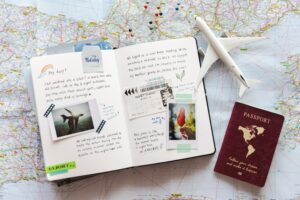Educational travel is so much more than just the destination—it’s the journey. In a world where learning is mostly confined to classrooms, textbooks, and exams, something truly transformative happens when students and teachers step outside school walls and journey beyond their local community. When you can create new life stories, see vast monuments, priceless works of art, and unique landscapes firsthand, that’s when education takes on a different form. Educational travel isn’t just a buzzword or catchy phrase, it’s a powerful and moving way to ignite curiosity, foster understanding, and create lasting memories with your fellow classmates. Whether you’re a student, teacher, or parent helping to organize or chaperone an educational tour, the adventure that awaits can be one of the most impactful learning experiences of a lifetime.
So, what exactly is involved in educational travel?
Educational travel refers to journeys that are intentionally designed to provide learning experiences outside the traditional classroom. These trips can take many forms—from history-focused student tours of Washington D.C. science-themed visits to NASA, art immersion trips to Paris, or experiencing an entirely different culture than yours in Japan. When properly planned, educational student tours combine adventure, fun, and learning and blend them into a cohesive experience that leaves participants inspired with a global mindset. Here’s why educational tours matter:
1. Learning Comes to Life
Educational tours transform abstract concepts into reality. They allow students to broaden their lines of thinking and experience a culture that’s different from their own. History becomes real when students trace the footsteps of ancient Romans through the Coliseum. Science is tangible when they witness the geothermal wonders of Iceland. Geography gains context when students navigate the streets of a new city or hike through a national park. Educational travel engages all the senses. Experiencing new destinations firsthand helps students internalize knowledge in a way that reading alone cannot, leading to a deeper understanding and improved retention.
2. Real-World Experience
Today’s world demands more than just academic knowledge. Critical thinking, communication, adaptability, and cultural awareness are all essential skills that simply cannot be fully developed in a traditional classroom. Educational travel fosters these qualities by placing students in unfamiliar settings where they must navigate new environments, interact with different cultures, and solve problems on the fly. Student tours provide guided activities that teach them to ask questions, analyze information, and make connections across disciplines. They learn how to be responsible travelers and active global citizens—lessons that are invaluable for both their academic and personal lives.
3. Cultural Exposure and Empathy
One of the most significant benefits of educational travel is exposure to different cultures and ways of life that are vastly different than ours in the U.S. Traveling allows students to step outside their comfort zones and challenge their assumptions. They witness firsthand how other parts of the world live, eat, worship, and celebrate. This exposure helps nurture a more nuanced worldview. In a society that’s becoming increasingly interconnected, such opportunities are key to raising open-minded, tolerant, and empathetic individuals.
4. Motivation and Engagement
It’s no secret that some students struggle with traditional learning environments. For many, a change in setting can ignite a love of learning. Educational tours provide that spark. When students see the practical application of what they’ve been studying, they often return to the classroom more motivated, engaged, and ready to excel. The anticipation of a trip can also serve as a powerful incentive. Many schools tie student tours to coursework or performance, which adds a level of purpose and excitement to the academic year.
5. Strengthening Teacher-Student Relationships
Teachers play a pivotal role in student tours. They guide, mentor, and support students throughout the journey, in a more informal setting than the classroom. This change in dynamic helps strengthen relationships, builds trust, and fosters mutual respect. When teachers travel with students, they bring lessons to life in real-time, adjusting discussions based on what the group is seeing or experiencing in real time. This shared life experience enriches the learning process and allows for deeper connections to be made.
6. Building Memories and Community
Beyond academics, educational tours build memories that last a lifetime. Students often form stronger bonds with their peers during travel, and the shared experience creates a sense of community that carries back into the classroom. The shared laughter during a group meal in a foreign city, the awe of seeing historic monuments together, and the late-night conversations stemming from the day’s experiences on a long bus ride, these moments help students truly connect.
Want to explore educational travel? Bring it up with your teacher, because they are the linchpins to make to happen. Their enthusiasm, guidance, and ability to connect learning objectives to real-world experiences make the difference between a routine field trip and a meaningful educational adventure. Many educators find that leading a tour renews their passion for teaching and reminds them of why they chose the profession in the first place—to inspire growth, spark curiosity, and help young people find their place in the world.
Are you ready? Don’t hesitate. The world is a classroom waiting to be explored, and EA Tours is here to help you plan Your Trip, Your Way.



